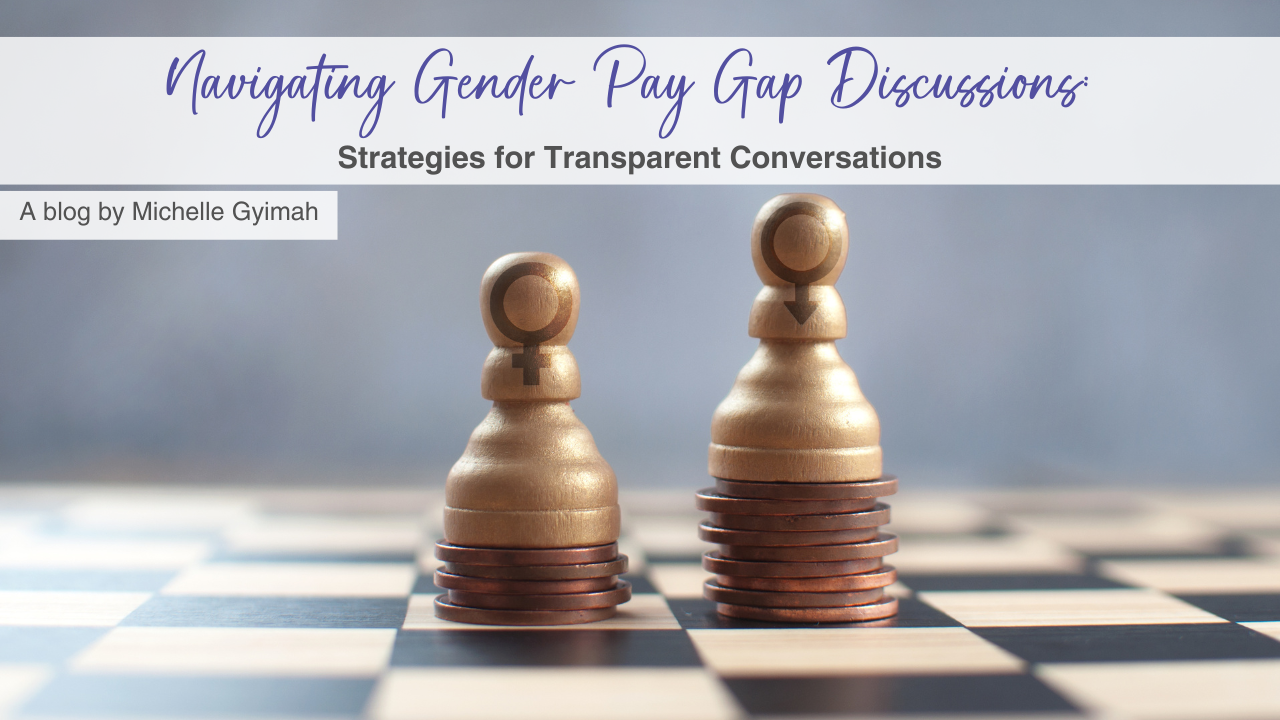Drop off your CV
We serve the global HR community through our offices located in Delhi, Hong Kong, London, New York, São Paulo and Singapore and have placed HR leaders in over 30 countries.
In the face of an exacerbated gender pay gap during the Covid-19 pandemic, organisations are...

In the face of an exacerbated gender pay gap during the Covid-19 pandemic, organisations are realising the need to prioritise addressing this issue transparently. Mere compliance with data disclosure is no longer sufficient; the focus now extends to fostering meaningful conversations around pay gaps.
As a pay gaps consultant, I have encountered various scenarios where organisations struggled to navigate these discussions. In this guide, I will provide insights on how to handle difficult pay gap conversations and emphasise the importance of ongoing dialogue.
1. Preparation is Key
Walking into a conversation unprepared can be detrimental to your brand reputation. I can remember a story about a financial services organisation who had just reported on their gender pay gap. Faced with unfavourable numbers, they hastily organised a meeting. They made it mandatory for all and held it in a room that was too small, which meant many had to stand. During the meeting the data was simply read out and no-one was allowed to ask any questions. Needless to say the atmosphere was tense. To avoid such pitfalls, thorough preparation is crucial. Ensure open discussions, allow questions and address concerns constructively.
2. Understand the Nature of Discussions:
Acknowledge and accept the anxiety surrounding discussions on pay gap data. The disruptive nature of the gender pay gap requires organisations to confront questions they may have avoided in the past. While the fear of blame may exist, embracing the transparency of reporting is essential. Anticipate the types of questions that could be asked and be prepared to answer them honestly, fostering an environment of open dialogue.
3. Acknowledge Limitations
No one has all the answers, but honesty is paramount. Consider the perspective of your employees, investors, stakeholders and partners. Anticipate questions like:
- Why do we have this pay gap?
- How did we get here?
- What actions led to this situation?
- How do we plan to rectify it?
Crafting thoughtful responses demonstrates a commitment to transparency, even if the answers are uncomfortable in the short-term.
4. Embrace Discomfort:
Difficult answers may be necessary, such as admitting to a lack of prioritisation or resistance to change. Embrace discomfort as part of the process. The goal here is not to embellish but to acknowledge and address business behaviours that may have contributed to the pay gap.
5. Address Thorny Issues:
Ignoring uncomfortable questions will no longer work in 2023/2024. Pay gaps, pay transparency and pay equity are now within the top 3 values of employees today. If your employees can think of a question, it's likely someone within the organisation will ask it. Effective preparation involves brainstorming and developing responses that convey a serious commitment to addressing pay gaps. Otherwise you risk your lack of preparation to inform your employees decisions about continuing to build their careers with you.
6. See the Opportunity for Change:
Reframe pay gaps as an opportunity for positive change. Acknowledge past shortcomings and emphasise how you are now focusing on rectifying them. While change will be challenging, it presents an opportunity to demonstrate a commitment to employee growth and well-being.
Transparent conversations about gender pay gaps are essential for organisational growth. Embrace preparation, honesty, and discomfort as integral components of these discussions. By addressing thorny issues head-on and viewing pay gaps as opportunities for positive change, organisations can not only meet compliance standards but also foster a culture of continuous improvement and inclusivity.
This blog was written for us by our partner Michelle Gyimah, if your organisation is navigating the complexities of the gender pay gap and seeks expert guidance, I invite you to take the next step. Book a free 30-minute call Book Michelle Gyimah (bookme.name) to discuss and develop a tailored action plan for addressing pay gaps and enhancing your communication strategies. Equality Pays, can pave the way for meaningful change and set your organisation on the path towards equitable practices and sustainable growth.